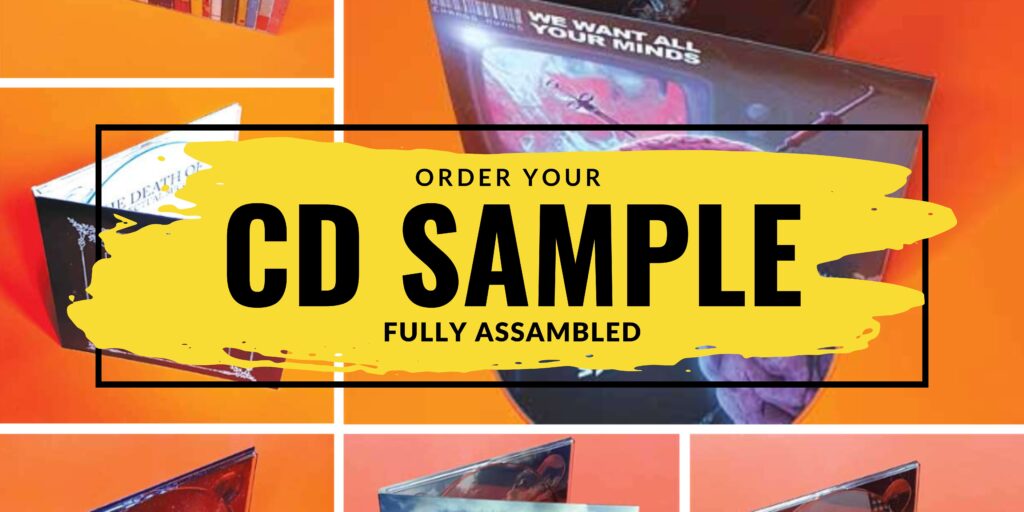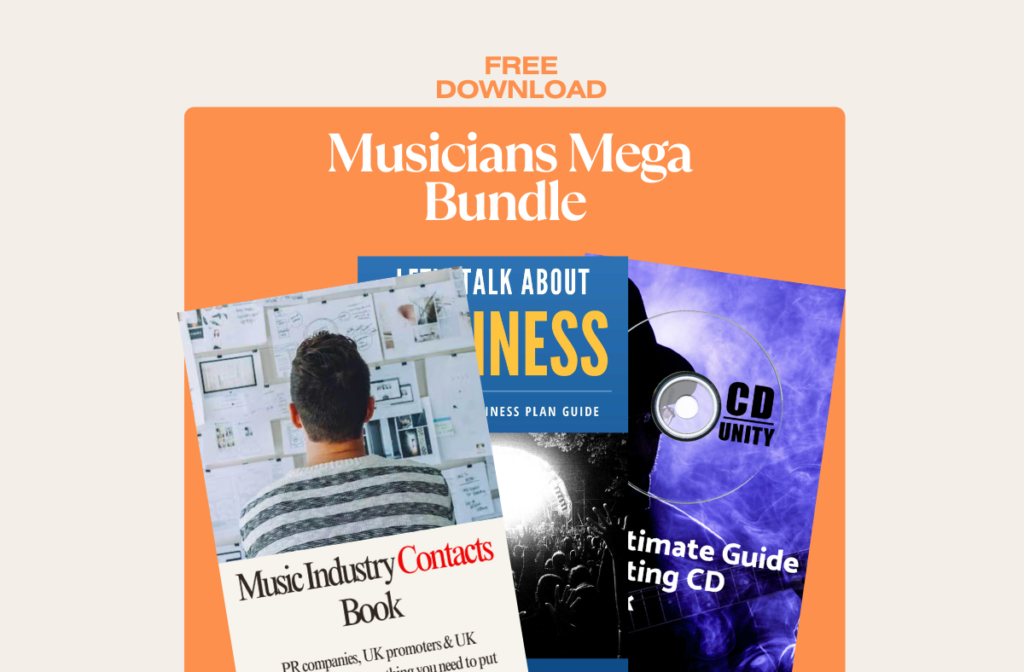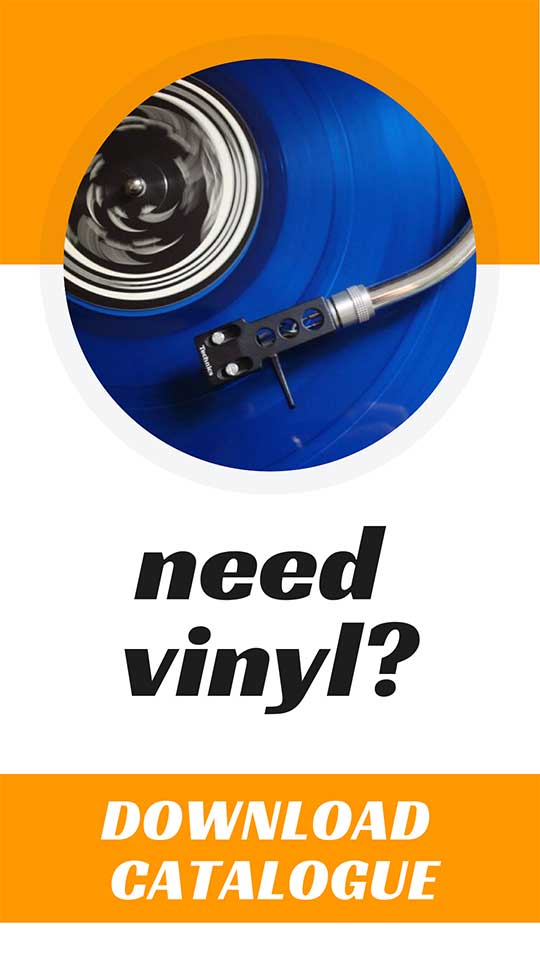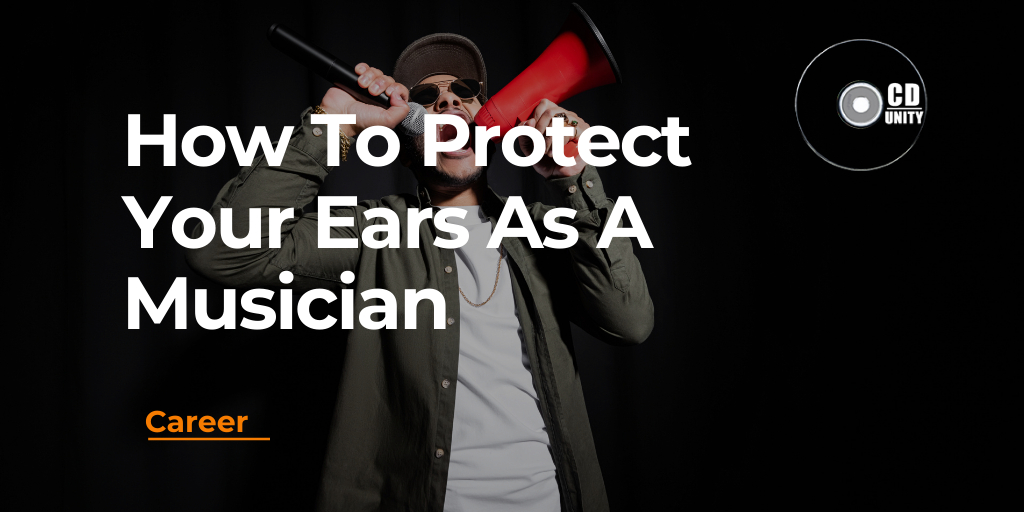
How To Protect Your Ears As A Musician
Are you concerned that loud music could harm your hearing as a musician? I understand—it’s quite common to feel ear fatigue after gigs. In fact, musicians are four times more likely to experience noise-induced hearing loss, which is exactly what led me to look into ways of protecting my own ears.
In this blog post, I’ll share some practical tips on preventing hearing loss and tinnitus through proper ear protection and simple steps you can take every day. Your ears do so much for you—let’s make sure we’re taking good care of them!
Key Takeaways
- Musicians face 4 times higher risk of hearing loss due to regular exposure above 85 dB, common at concerts and rehearsals; repeated loud noise can lead to tinnitus symptoms like buzzing or ringing.
- Custom-made earplugs from audiologists (such as ACS models provided by Harley Street Hearing) offer musicians balanced sound quality and essential protection against damaging volumes over 85 dB without distortion.
- Using Sound Pressure Level (SPL) apps helps musicians monitor volume levels during practice; safe listening should stay around or below 85 dB since each increase of just 3 dB doubles the strain on ears.
- Annual checks with an audiologist help catch early signs of hearing damage such as mild tinnitus—Help Musicians UK’s subsidised hearing scheme provides affordable specialist support tailored for musicians’ needs.
- Practical tips include regular listening breaks hourly, working at lower sound volumes in studios, using custom-fitted ear protection consistently and avoiding caffeine or alcohol before performances to manage tinnitus.
Why Musicians Need to Protect Their Hearing
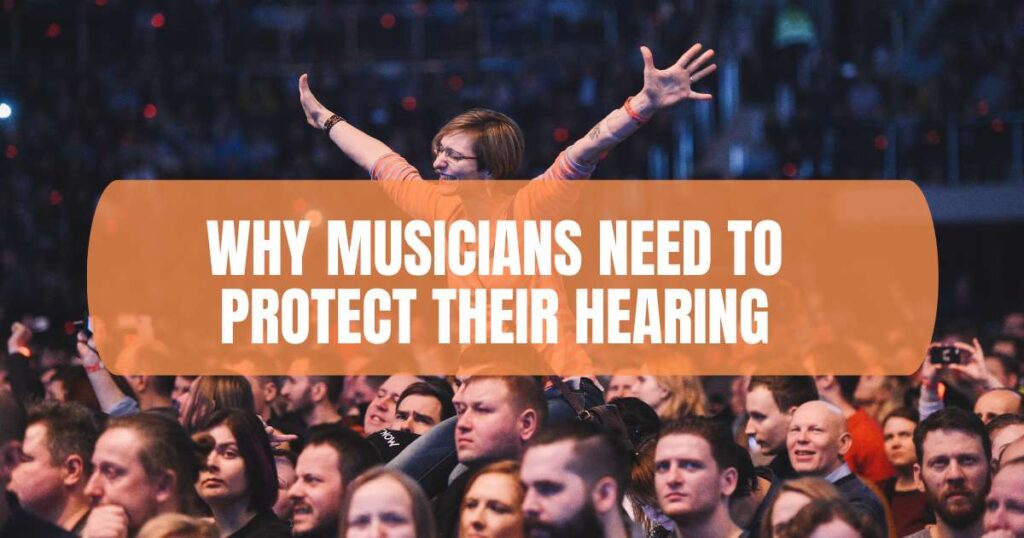
The impact of loud music on hearing
As a musician, playing loud music often is part of the job—but it can seriously damage your hearing. Exposure to sounds above 85 decibels (dB), like amps, drums or live gigs, can harm your inner ear and cause permanent hearing loss.
After a gig with loud sound levels of around 110 dB—which isn’t rare—I sometimes experience ringing in my ears or muffled hearing as warning signs that my ears need better protection.
Regular exposure to volume at these harmful levels leads musicians like me towards increased risks of tinnitus—constant buzzing or ringing sounds—and long-term hearing damage. Over time this irreparable damage affects how I perceive frequencies clearly and accurately, impacting my ability to perform well on stage and in studio sessions.
Protecting our ears from high-decibel environments isn’t just wise; it’s essential to our musical careers and overall health and well-being.
Risks of tinnitus and hearing loss
I’ve known musicians who’ve dealt with tinnitus, a ringing or buzzing in your ears caused by exposure to loud sound. Many musicians don’t realise that constant exposure to loud music can lead directly to permanent hearing problems.
In fact, research shows that musicians are nearly four times more likely than others to suffer from noise-induced hearing loss.
Tinnitus isn’t just annoying—its symptoms can seriously affect daily life and mental health if left unmanaged. Loud noises damage the tiny hairs in my inner ear, which can’t grow back once harmed; this leads to gradual and permanent hearing loss over time.
Protecting my ears with suitable earplugs at every concert or rehearsal is essential for long-term healthy hearing.
Once you lose it, your hearing never fully returns—take steps now so silence doesn’t replace music.
Essential Tips to Protect Your Ears as a Musician
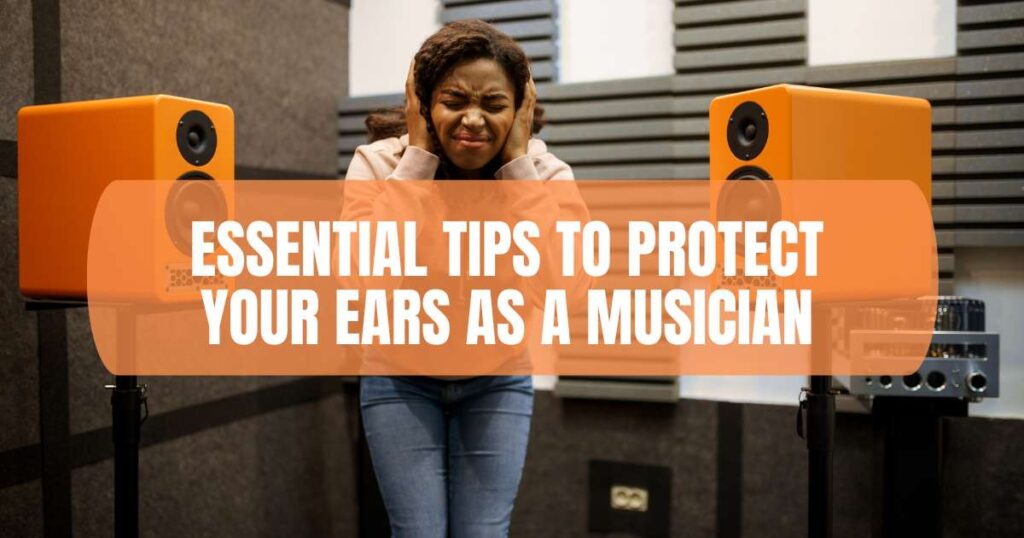
Use custom-made earplugs
As a professional musician, I found regular foam earplugs dulled the sound, making it hard to play well. Switching to custom-made hearing protection changed everything for me. These earplugs are moulded precisely to fit my ears and reduce noise evenly across all frequencies—this maintains clear and balanced sound quality while offering essential hearing protection during loud concerts or rehearsal sessions.
Custom-made earplugs like ACS provide accurate audio clarity without distortion, allowing me full control over my music performance. They significantly lower risks associated with prolonged exposure in loud environments, such as tinnitus or permanent hearing damage.
After choosing bespoke hearing protection through a specialist audiologist at Harley Street Hearing, I’ve noticed less ringing in my ears after gigs—a sure sign of healthy choices for long-term musical enjoyment!
Take regular listening breaks
Taking regular listening breaks is a key step to protect your hearing as a musician. Loud music stresses my ears, and prolonged exposure increases the risk of tinnitus or permanent hearing loss—so giving them rest periods really matters.
I’ve learnt that short breaks every hour can help ensure I prevent hearing damage and keep enjoying music without long-term harm.
Your ears need silence like your eyes need darkness. — Help Musicians UK
Even brief pauses between rehearsals or during recording sessions make a big difference. They allow the inner ear hair cells valuable recovery time, lowering chances of lasting harm from high sound levels common among musicians.
Monitor sound levels with an SPL app
I always keep an SPL app on my smartphone to check how loud the music really gets. SPL stands for Sound Pressure Level, and these apps measure noise in decibels (dB), helping me manage sound safely.
At a recent band practice, I found we peaked at over 105 dB—way above the recommended safe limit for musicians who want to protect their ears. Safe listening levels are usually around 85 dB; each increase of 3 dB doubles stress on your eardrum, heightening the risk of hearing loss or tinnitus.
With regular use of an SPL app, it is easy to catch excessively high volumes early and take action to protect my hearing before serious damage occurs.
Work on music at lower volumes
I’ve found that working on music at lower volumes helps a lot. Turning the volume down can protect hearing from damage and ringing in your ears — known as tinnitus. Lower levels also allow me to hear details more clearly, bringing out issues with mix balance or frequency clashes.
Keeping headphone and speaker output below 85 decibels is key for safe listening. An SPL app can help check sound levels easily, so I know exactly how loud my workspace gets during sessions.
Staying mindful about turning things down makes a big difference in preserving hearing health long term — essential advice and support for musicians like us who spend many hours creating music.
Benefits of Custom Hearing Protection
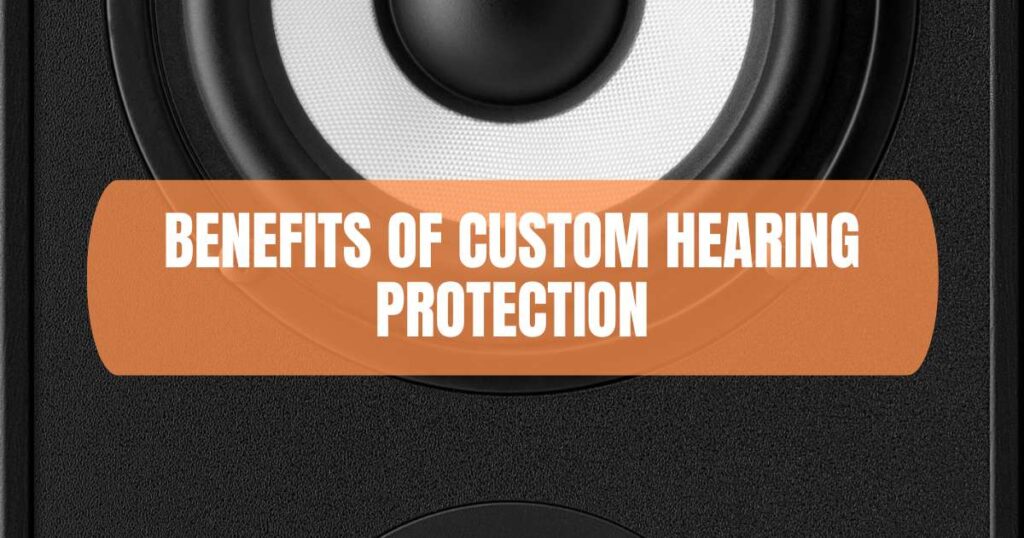
Enhanced sound clarity
Enhanced sound clarity is one of the best things about using earplugs for musicians. At first, I assumed ear protectors would muffle music or make it sound dull. After trying them out in practice and live gigs, the opposite proved true.
Quality hearing protection filters loud noises evenly—music stays clear and balanced without harming ears.
Good hearing protection doesn’t distort your music; it actually helps you hear clearly by blocking the harmful noise levels. – Hearing Health Foundation
With earplugs designed specially for musicians, I’ve noticed subtle details like guitar riffs and drum fills stand out more. Instead of losing clarity, my musical experience improved greatly—I am now able to focus better on performance dynamics while protecting my long-term hearing health as a musician.
Long-term hearing preservation
Long-term hearing preservation is vital, especially for musicians like myself. With gigs, recording and rehearsals all year round, protecting my ears now can prevent irreversible damage later on.
Studies show musicians are four times more likely to develop signs of hearing loss than other people. By wearing custom-made ear plugs or in-ear monitors made specifically for musicians’ needs, I reduce the chances of developing tinnitus or permanent hearing issues in future.
Taking steps to protect my ears through a regular hearing assessment—from audiological professionals—helps spot problems early and provides access to specialist hearing advice if needed.
The UK charity Help Musicians even runs a heavily subsidised Hearing Health Scheme which offers affordable protection options tailored specifically towards musical careers. Protecting my ears will allow me to continue enjoying music clearly throughout life—that’s what preserving musician’s hearing is all about!
Types of Hearing Protection for Musicians
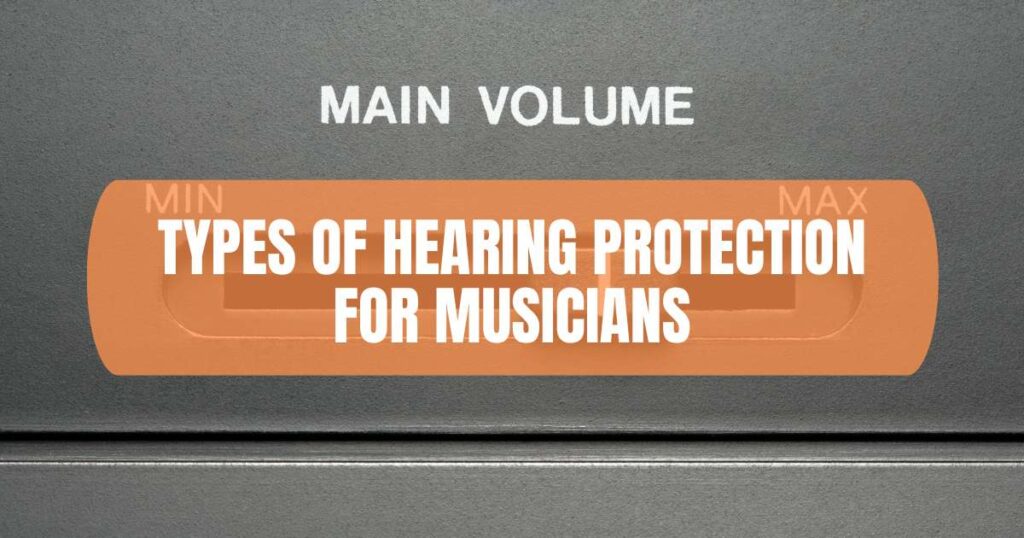
In-ear monitors
In-ear monitors are great tools, helping me protect my hearing health as a musician. They sit snugly in the ear canal and let me hear my voice or instruments clearly at lower volumes, even on loud stages.
Unlike standard stage speakers, these devices reduce background noise. This means less chance of tinnitus or damaged hearing over time. Good in-ear monitors provide richer sound quality too—essential for musicians to protect their ears and perform well.
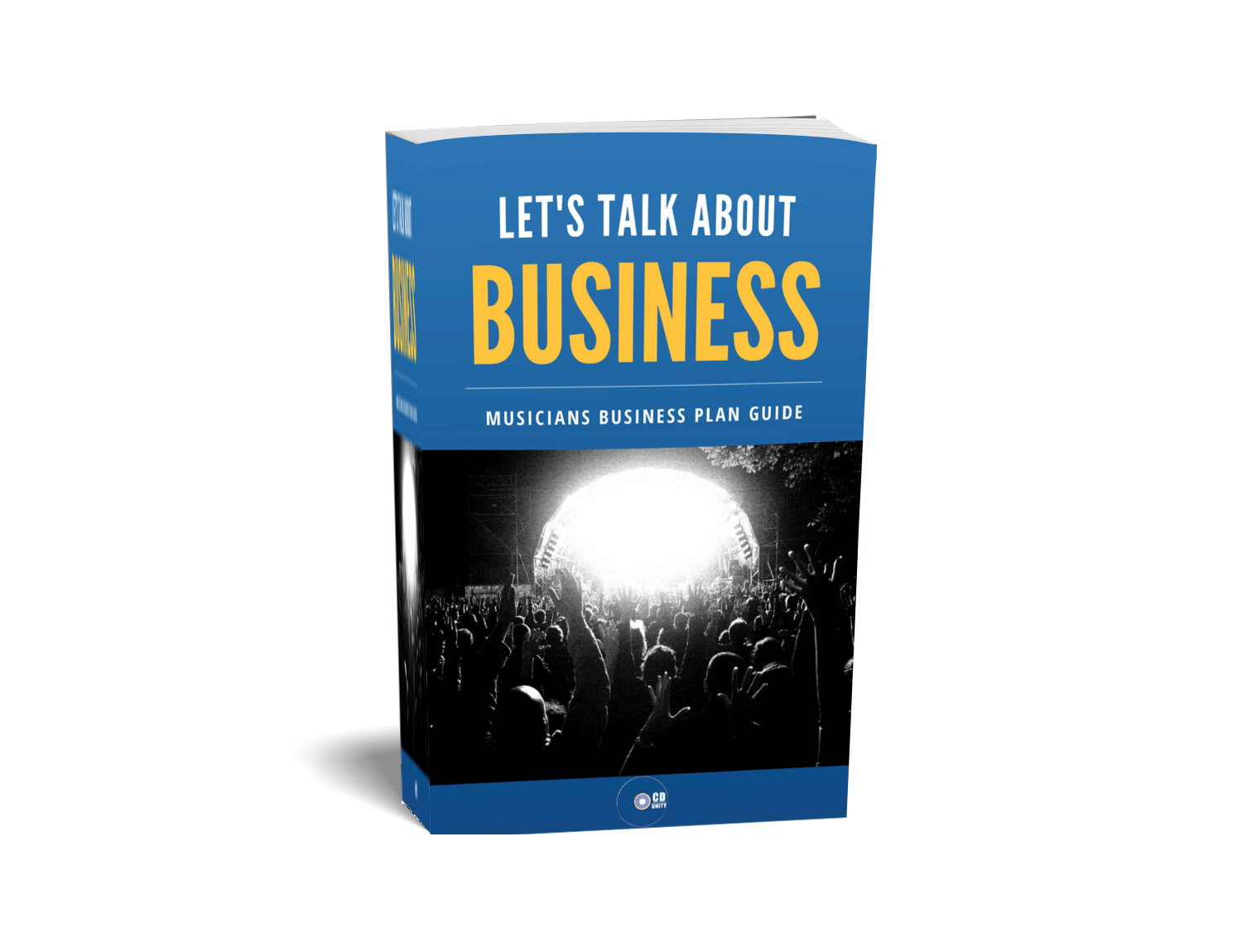
Foam and reusable earplugs
Foam earplugs are affordable and easy to use. I simply squeeze them, put them in my ears, and they expand to lower noise levels. They’re great at gigs or rehearsals where loud music can damage musicians’ hearing.
Reusable earplugs also offer good protection for ears; they’re washable, last longer, and often provide clearer sound quality than foam plugs. For example, brands like Alpine MusicSafe or Etymotic ER20 are popular with musicians because these earplugs are designed specifically to protect the hearing while preserving clear sound—perfect when playing or enjoying live music often.
Importance of Regular Hearing Checks
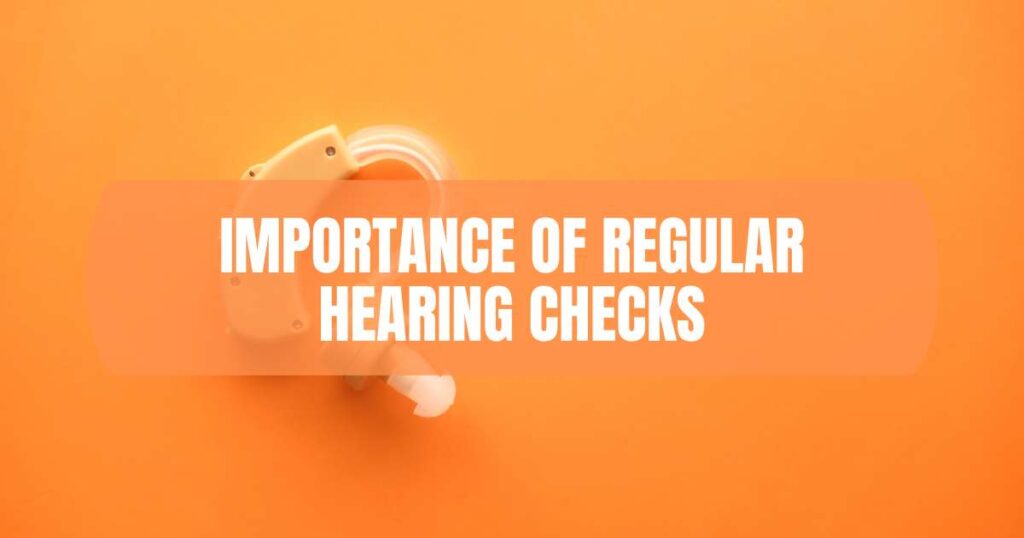
Annual audiological assessments
I get my hearing checked every year—this is vital for musicians. Annual audiological assessments help spot early signs of damage before my hearing is seriously harmed. A simple hearing test can reveal minor issues, like subtle loss in high tones or mild tinnitus symptoms, that might otherwise go unnoticed.
Early detection makes managing these conditions much easier and prevents lasting problems unique to musicians’ hearing health.
Early detection of hearing issues
etting your hearing checked once a year is important for musicians. Early detection of hearing issues can prevent minor problems from turning into permanent damage, such as tinnitus or hearing loss—conditions that harm both music quality and overall health.
During my annual audiological assessments, I learned to spot early signs like ears ringing after gigs and dulled sound perception.
Early tests give me a clear idea of how well my hearing works and guide the steps to protect your hearing better. The sooner possible problems get spotted, the easier they are to manage through simple actions like wearing ear protection or using a specially fitted hearing aid if needed.
Regular checks are vital because musicians’ careers rely on sharp listening skills; taking care of your ears now helps maintain musical ability for years ahead.
Managing Tinnitus as a Musician
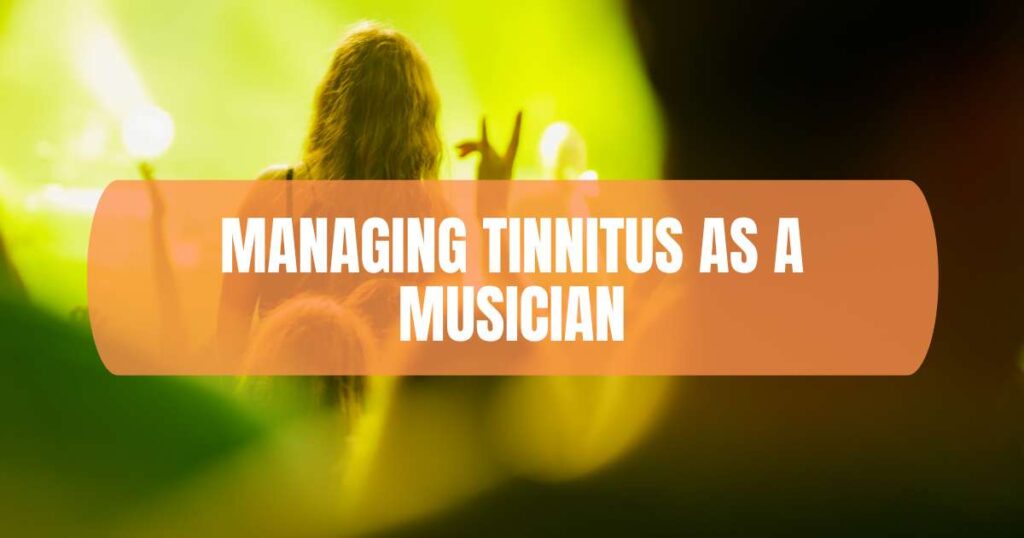
Understanding tinnitus symptoms
I often describe tinnitus to musicians as that annoying ringing or buzzing in the ears after loud gigs. This sound isn’t from outside—it comes from within your own head and can take many forms like whistling, humming, hissing, or even clicking noises.
For some people, it stays constant; for others, it fades and returns randomly. Musicians’ hearing is damaged by constant exposure to high volumes—and tinnitus might be an early sign of this damage.
Tinnitus symptoms sometimes feel worse during quiet times—like when I try falling asleep at night after a loud session on stage or practising music at high volumes. The condition may cause frustration with concentration problems and lead you into stress or anxiety cycles.
Loud noise makes tinnitus symptoms flare up more easily—a clear reason why it’s vital for musicians’ hearing health to wear ear protection regularly and get your hearing checked often through annual audiological assessments under schemes offering subsidised help for musicians.
Strategies to minimise its impact
Tinnitus can be tough as a musician—I’ve felt its frustrating buzz myself. Here are some useful ways I’ve found to limit tinnitus and protect musicians hearing, keeping the joy of creating music alive:
- Use custom-made earplugs created for musicians and music lovers—they lower sound while retaining clear musical quality, helping minimise annoying ear ringing.
- Keep track of practice sessions and gigs, ensuring frequent breaks—long exposure to loud noise can worsen tinnitus symptoms and harm the nature of hearing over time.
- Regularly use a sound level (SPL) meter app during rehearsals—I always check levels stay safe below 85 decibels, proven effective in preventing damage to musicians hearing.
- Quiet spaces between sets or recording sessions give my ears relief—stepping away from noisy areas has clearly reduced the impact of ringing moments for me.
- Avoid caffeine and alcohol before performances—for my own tinnitus experience, cutting down stimulants helps ease the buzzing noticeably.
- Practise relaxation methods like mindfulness, deep breathing or gentle yoga weekly—a calm body reduces stress-related flare-ups common with tinnitus problems affecting musicians.
- Use background sounds at night such as white noise apps or soft calming tracks—as a musician dealing with mild tinnitus, soothing bedtime sound masking greatly improves quality sleep.
- Get involved in support networks such as ‘Help Musicians’, which provide heavily subsidised by Help Musicians hearing health schemes—having one set of hearing protection funded has made managing my condition easier financially and practically.
- Schedule yearly audiologist appointments—even slight early changes in musicians hearing caught through annual checks allowed me faster action against tinnitus symptoms worsening.
How to Choose the Right Ear Protection
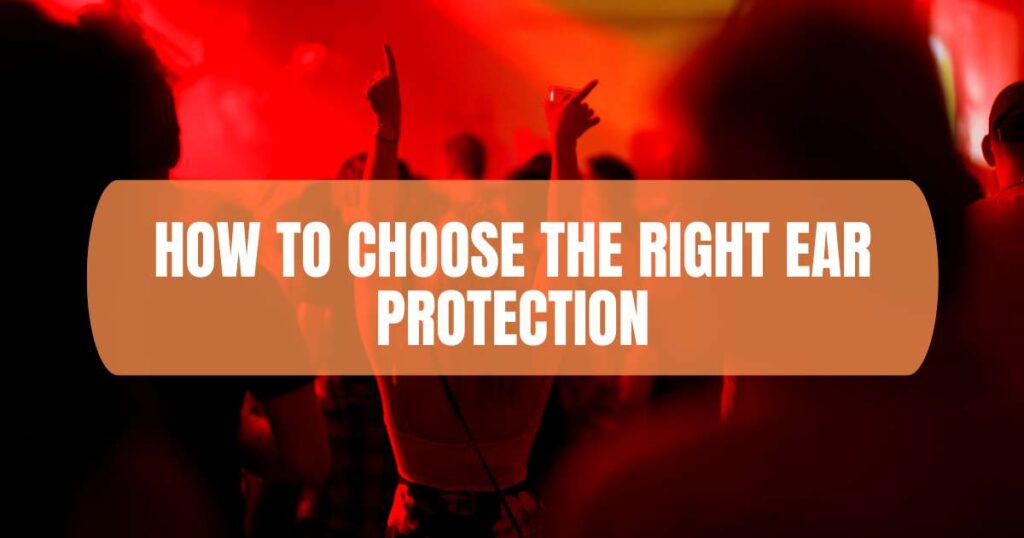
Factors to consider when buying earplugs
As a musician who’s tried plenty of earplugs—the best earplugs for me offer comfort, clarity and just enough noise reduction. I always check the noise reduction rating (NRR), which usually ranges from 15 dB to over 30 dB, because higher ratings reduce more sound.
Another key factor is material—silicone plugs feel comfy for long shows compared to foam. It’s also worth getting plugs that preserve music fidelity like custom-moulded ones; they’ll cost a bit more but help shape better listening quality.
My experience taught me fit is crucial: ill-fitting earplugs slip out or fail to block harmful levels of sound. A snug fit ensures hearing safety, clarity on stage and peace of mind during loud rehearsals or gigs.
I learned it’s wise to test various types before settling on one pair—that way there’s less chance you’ll compromise your awareness of hearing details in your performances.
Importance of consulting an audiologist
I learned first-hand that consulting an audiologist is vital for musicians. Audiologists provide yearly assessments, helping catch any hearing issues early before they worsen. For example, I discovered mild noise damage through my routine check—something I’d missed myself.
Audiologists offer personalised advice on ear protection based on your exact hearing needs and lifestyle. This guidance helps me pick suitable earplugs, letting me perform confidently while safeguarding my ears.
Moreover, listening to loud music frequently means we’re at higher risk for tinnitus or hearing loss. An audiologist helps track sound exposure levels over time and suggests prevention strategies tailored specifically to musicians’ unique requirements.
Many of us underestimate our volume exposure until it’s objectively measured by a professional test—I know I did! That professional support ensures long-term hearing health, highlighting the importance of hearing clearly in every performance and session we undertake.
All in All
Protecting my ears is key to a long and rewarding career as a musician. Simple steps like using earplugs, taking regular breaks and checking sound levels make all the difference. Investing in good hearing protection lets me enjoy clearer sound now while safeguarding my hearing for years ahead.
Making ear health a daily habit ensures I keep enjoying music—without risking harm to my ears.
Cheers, Josh
The Big Lists Of Music Promo Contacts
Includes PR companies, UK promoters & UK booking agents. Everything you need to put your band on the map.
Access Lists
Hello, I’m Josh, and I’ve been honing my graphic design skills for almost 15 years now, catering to the needs of bands and businesses alike. What really fascinates me is the business aspect of the music industry. In addition to my design work, I also happen to play the Hammond organ, and I strive to share my knowledge through helpful articles that I write exclusively for you all!

